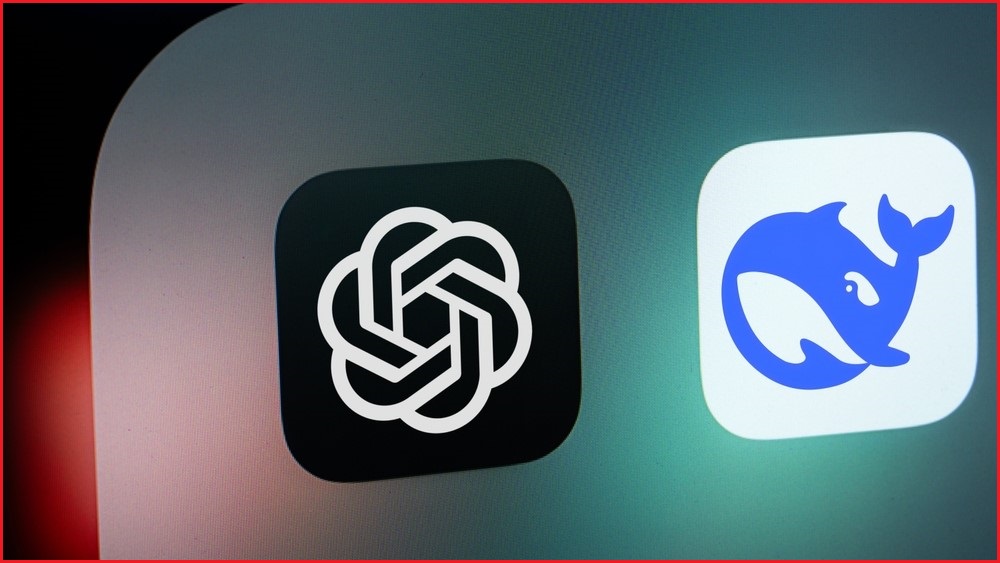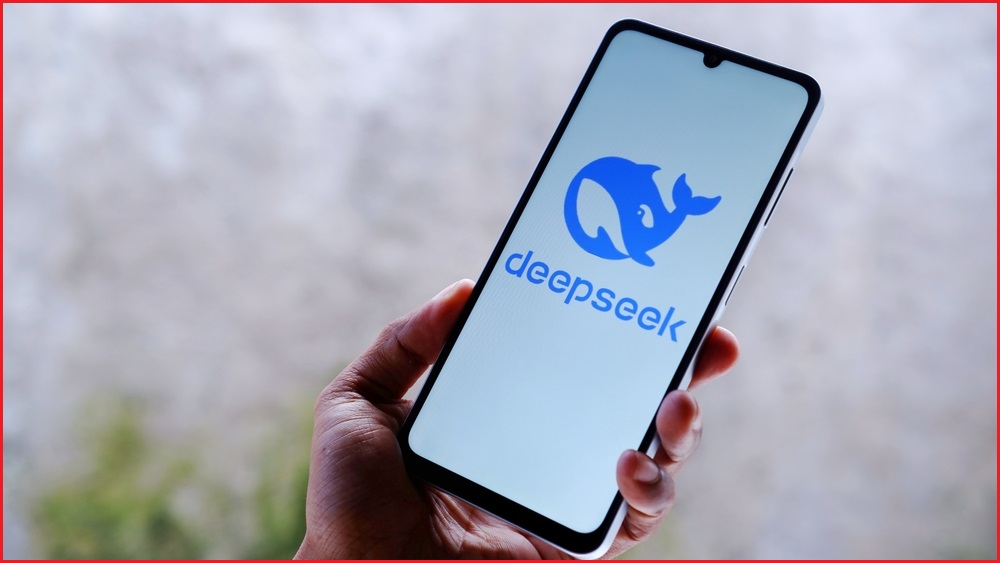US technology shares suffered a major dip on Monday after Chinese AI chatbot DeepSeek challenged American competitors on the app charts — though an unfolding cyberattack against the service may threaten its momentum.
Tech giants such as Microsoft, Google parent Alphabet, Tesla, Meta, and Amazon all suffered losses when US markets opened on Monday, thanks largely to the rising popularity of Chinese AI lab DeepSeek’s AI assistant.
Announced a week ago, DeepSeek-R1 — a model which is said to use more concise “reasoning patterns”, less data, and lower-cost chips than leading US models — has helped DeepSeek's app top the Apple App Store charts in Australia, the US, and UK.
After releasing its latest research paper on R1, DeepSeek gained notable traction among AI pundits on social platforms Reddit and X through the weekend.
After causing stock exchange havoc, DeepSeek reported “degraded performance” for its web and application programming interface services due to a supposed cyberattack.
“Due to large-scale malicious attacks on DeepSeek's services, we are temporarily limiting registrations to ensure continued service,” wrote DeepSeek.
DeepSeek has not shared any details about the nature of the attacks or the suspected perpetrators at the time of writing.
Nvidia shares plummet
Early trading on Monday saw shares in prominent AI chipmaker Nvidia decline some 13.6 per cent.
Having grown to become the US’ most valuable listed company during the AI boom, the company closed 17 per cent down and lost some $940 billion ($US590 billion) in value.
US media described the drop as the biggest in US stock market history.
The tech-heavy Nasdaq-100 index was down around 3 per cent at close.
Why the hype around DeepSeek?
DeepSeek’s leading advantage over rivals such as America’s OpenAI is its claim to have used fewer chips to develop its models.
As a result, high-performing offerings such as R1 — which can purportedly hold its own against OpenAI’s o1 and Anthropic’s Claude 3.5 Sonnet — are supposedly cheaper to produce and use.
According to The Guardian, a December research paper said DeepSeek managed to build its models with Nividia's H800 chips, and not the more advanced H100s which were banned from export to China in 2022.

DeepSeek says its R1 model is as powerful as those created by ChatGPT-maker OpenAI, and costs less to use. Photo: Shutterstock
Director of the RMIT University Centre for Cyber Security Research and Innovation, Matt Warren, told Information Age this purported lead in production costs has “impacted confidence in the US stock markets around AI investments”.
“DeepSeek claimed that their AI model was developed for $US5.6 million rather than the billions that US businesses invest in AI development,” said Warren.
“The claim of $US5.6 million does seem a very low figure — and whether [or not] it is disinformation to try and manipulate the markets — it has worked.”
Ryan Cox, global head of AI at tech consultancy Synechon, added DeepSeek was set apart by its “efficient architecture, innovative training techniques, and optimised resource management”.
“This opens the door for businesses of all sizes to adopt advanced AI without the exorbitant costs,” said Cox.
Finally, DeepSeek’s R1 is open-source, which is notable given OpenAI has long faced scrutiny for allegedly abandoning its early open-source roots.
🚀 DeepSeek-R1 is here!
— DeepSeek (@deepseek_ai) January 20, 2025
⚡ Performance on par with OpenAI-o1
📖 Fully open-source model & technical report
🏆 MIT licensed: Distill & commercialize freely!
🌐 Website & API are live now! Try DeepThink at https://t.co/v1TFy7LHNy today!
🐋 1/n pic.twitter.com/7BlpWAPu6y
‘AI arms race’ heating up
DeepSeek’s R1 research findings arrived only weeks after the US tightened its controls on AI chip exports.
Marking one of the Biden administration’s last actions, adversary nations such as China and Russia were effectively banned from receiving advanced US-made AI chips.
President Donald Trump backed his recent inauguration with the announcement of an unprecedented AI investment venture titled Stargate, worth hundreds of billions of dollars.
Aimed at boosting data infrastructure and cementing a US lead in the race for AI dominance, Stargate was backed by OpenAI, Nvidia, Microsoft, and US cloud giant Oracle, among others.
If DeepSeek’s claims around cheaper production are true, it could significantly undermine Stargate’s anticipated $798 billion (US$500 billion) in investments.
Cox, meanwhile, noted Synechon’s testing of DeepSeek's 32B parameter model revealed both “promising capabilities” and “important considerations for bias mitigation and compliance standards before rolling it out more broadly”.
RMIT University’s Matt Warren echoed these findings by observing DeepSeek had “built in political protocols to stop any unwanted political discussions”, noting a particular example where an attempt to talk about Tiananmen Square’s historical 1989 incident was met with the response, “Sorry, that’s beyond my current scope. Let’s talk about something else.”
“There are concerns that the world will be divided into blocks, each with its own information systems and social media platforms,” Warren told Information Age.
“I think this will be start of the technology division in the world and an AI arms race.”










